Charles Bradley
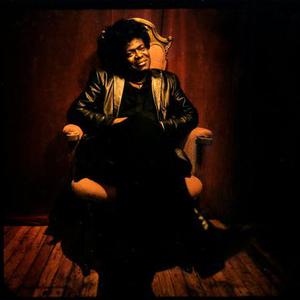
- Genre:
- R&B
- Meta styles:
- Contemporary R&B, Soul
- Style:
- Retro-Soul
Charles Bradley is no stranger to hard times. Born in Gainesville, Florida in 1948 and raised in Brooklyn, New York, Charles spent the better part of his childhood living on the streets. One of the more optimistic moments of his childhood came in 1962, when his sister took him to see James Brown at The Apollo. Brown's energy formed a lasting impression on Charles. He went home and immediately began practicing microphone tricks with a broom attached to a string, imitating the Godfather's every move.
With his newfound inspiration came an urgent desire to get off the streets and make something of himself.
Charles made his way out of Brooklyn via Job Corps, a federal program for helping underprivileged families. His job placement took him to Bar Harbor, Maine where he learned to cook. While in Maine, he put together a band and began to pursue his passion for performing. He had his first taste of the stage when he was asked to perform for some female employees of Job Corps in Poland Springs. The ladies went wild and Charles knew that he was destined to be an entertainer. Unfortunately, his fate was put on hold when his band mates were drafted in the Vietnam War, and he was forced to find work as a chef in Wassaic, New York at a hospital for the mentally ill.
After nine years cooking for 3500 people a day, being harassed by local police officers, and having no musical outlet, Charles decided to leave Wassaic and head west in search of a dream. He had saved up enough money to buy a new Ford but soon realized that he couldn't keep up with the payments; he promptly returned it to a dealer and began hitchhiking. He caught rides all the way from New York to California and up through Canada. He persevered through the dangers of the road (including one driver who confided in him that he had just killed his wife and children) and eventually landed in Alaska where he once again found work as a chef. Though the job paid well, he was not well liked by his fellow chefs, and soon made his way back to California via airplane.
Charles spent over 20 years in California, making his living as a chef, all the while playing music on the side. He had no regular band, but he played pick-up gigs when they came along and sat in on recording sessions to feed his musical cravings. Things seemed to be looking up for Charles, but just as he was about to put a down payment on his first house, he was laid-off from his job of 17 years. Being fired forced him to re-evaluate his life out west. Ultimately, he decided to come home to Bushwick, Brooklyn to be with his family again. Charles took every penny he had saved, loaded up a truck with the musical equipment he collected over the years, and drove back to New York. At this point, he was fed up with the tribulations of being a chef and took up work as a handyman to allow himself the flexibility to pursue his musical career.
Charles finally found an audience when he began making appearances in local Brooklyn clubs performing his James Brown routines under the alter ego ?Black Velvet.? At 51, he was finally making a life for himself back home. His musical career was moving forward, but he was to be tested once again.
Charles awoke in his mother's house one morning to the sounds of police sirens. He was devastated to find that his brother had been shot and killed by his nephew. Life did not seem worth living anymore.
Charles was down and out when Gabriel Roth of Daptone Records happened upon him performing his Black Velvet act at the Tarheel Lounge in Bedstuy. Roth recognized his raw talent and directly brought him into the Daptone ?House of Soul? studios for a session with the Sugarman 3. "Take It as It Comes" was Charles' first single on Daptone and it proved him as a worthy vocalist. Roth eventually brought Charles out to Staten Island to see Dirt Rifle and the Bullets, a young funk band playing James Brown and Meters influenced songs. Thomas Brenneck, songwriter and guitarist for the Bullets, hit it off with Charles and they began working together. They released two singles on Daptone under the name ?Charles Bradley and the Bullets,? but the Bullets soon dismantled in order to form the afrobeat influenced Budos Band.
However, Brenneck knew that Charles had something more to give and after moving to Bushwick himself, he and Charles reunited. In time, they became close friends and Charles confided his life story in Brenneck. The young producer was moved when he heard Charles tell the painful story of his brother's death. Brenneck said, "Charles, we gotta put that story to music." Brenneck had put together a small bedroom studio and was working on instrumentals with a new group soon to be named Menahan Street Band. His new sound was the perfect compliment for the heartfelt and troubled lyrics that sprang from Charles' story. Brenneck had just launched Dunham Records, a division of Daptone, and would release Charles' "The World (Is Going Up in Flames)" and "Heartaches and Pain" as it's second single. A departure from his Black Velvet act, the songs showed a new side of Charles as a compelling artist in his own right and proved to be a great success. Many late night writing and recording sessions later, he and Brenneck completed their first full-length record, "No Time for Dreaming". Charles always knew he was born to entertain, but in the making of this record he discovered a proclivity for songwriting as well.
The record was a labor of love for both Charles and Brenneck. After years of working together, "No Time for Dreaming" is due for international release on Dunham Records. In the meantime, Charles has been touring with the Menahan Street Band and honing his passion as a singer and an entertainer. If you know Charles today, then you know one of the most loving, humble, honest and genuine human beings you will ever know. Charles Bradley spent most of his life dreaming for a better one, and now there is no more time for dreaming, just time for singing, dancing and loving.
- Sort by
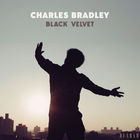
Black Velvet
- Year:
- 2018
- Tracks:
- 10
- Bitrate:
- 320 kbps
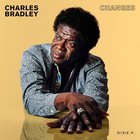
Changes
- Year:
- 2016
- Tracks:
- 11
- Bitrate:
- 320 kbps
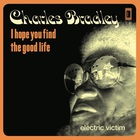
I Hope You Find The Good Life / Electric Victim (CDS)
- Year:
- 2014
- Tracks:
- 4
- Bitrate:
- 251 kbps
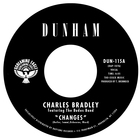
Changes (Feat. The Budos Band) (VLS)
- Year:
- 2013
- Tracks:
- 2
- Bitrate:
- 320 kbps
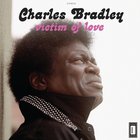
Victim of Love
- Year:
- 2013
- Tracks:
- 11
- Bitrate:
- 320 kbps
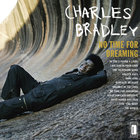
No Time For Dreaming
- Year:
- 2011
- Tracks:
- 12
- Bitrate:
- 320 kbps
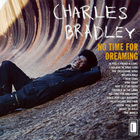
No Time For Dreaming (Expanded Edition)
- Year:
- 2011
- Tracks:
- 14
- Bitrate:
- 320 kbps
 Lee Moses 2
Lee Moses 2 Black Joe Lewis 2
Black Joe Lewis 2 Marc Broussard 15
Marc Broussard 15 Mayer Hawthorne 15
Mayer Hawthorne 15 Menahan Street Band 3
Menahan Street Band 3 Revelations 1
Revelations 1 wilson pickett 30
wilson pickett 30 Amos Lee 21
Amos Lee 21 Curtis Harding 7
Curtis Harding 7 Eli Paperboy Reed 6
Eli Paperboy Reed 6 Lady 2
Lady 2 Nathaniel Mayer 3
Nathaniel Mayer 3 Andre Williams 10
Andre Williams 10 Curtis Salgado 9
Curtis Salgado 9 Lizz Wright 8
Lizz Wright 8 Nicole Willis 5
Nicole Willis 5 The Sha La Das 1
The Sha La Das 1 Jeter Jones 4
Jeter Jones 4 Lee Fields 7
Lee Fields 7 Saun & Starr 1
Saun & Starr 1 Son Little 7
Son Little 7 Sugaray Rayford 6
Sugaray Rayford 6 The Tibbs 2
The Tibbs 2